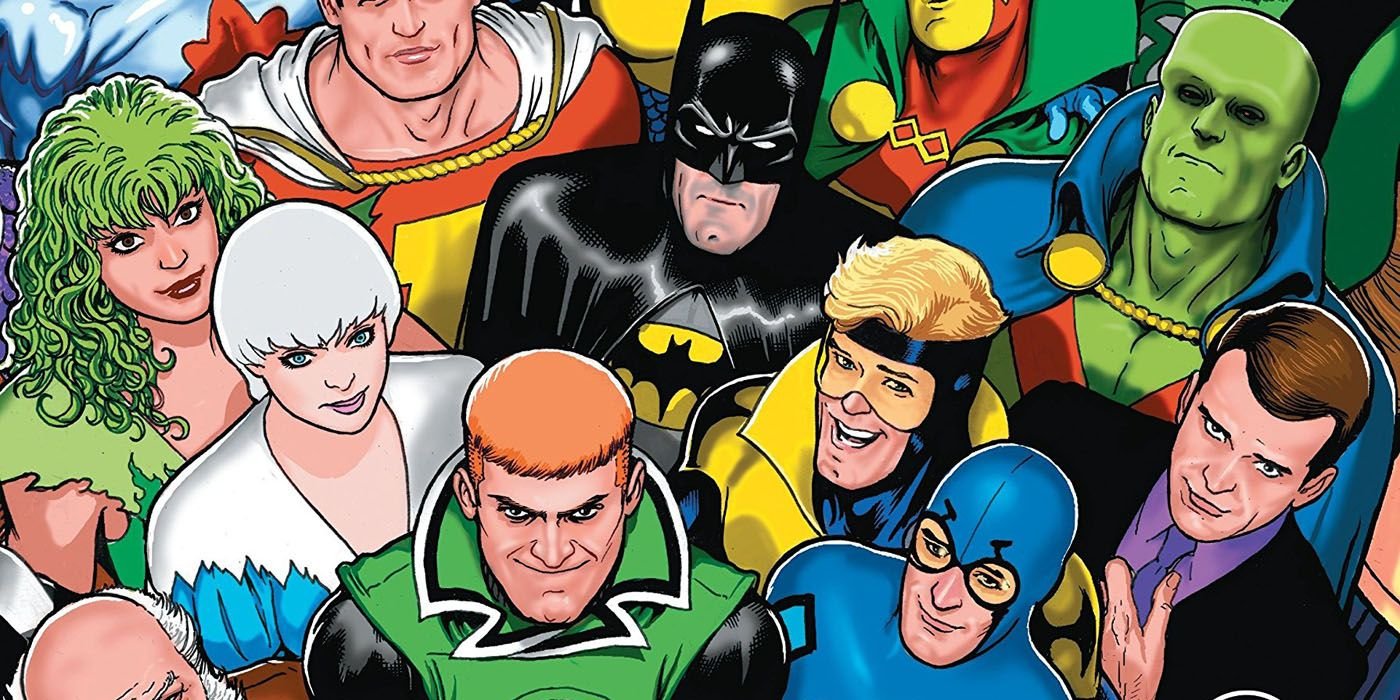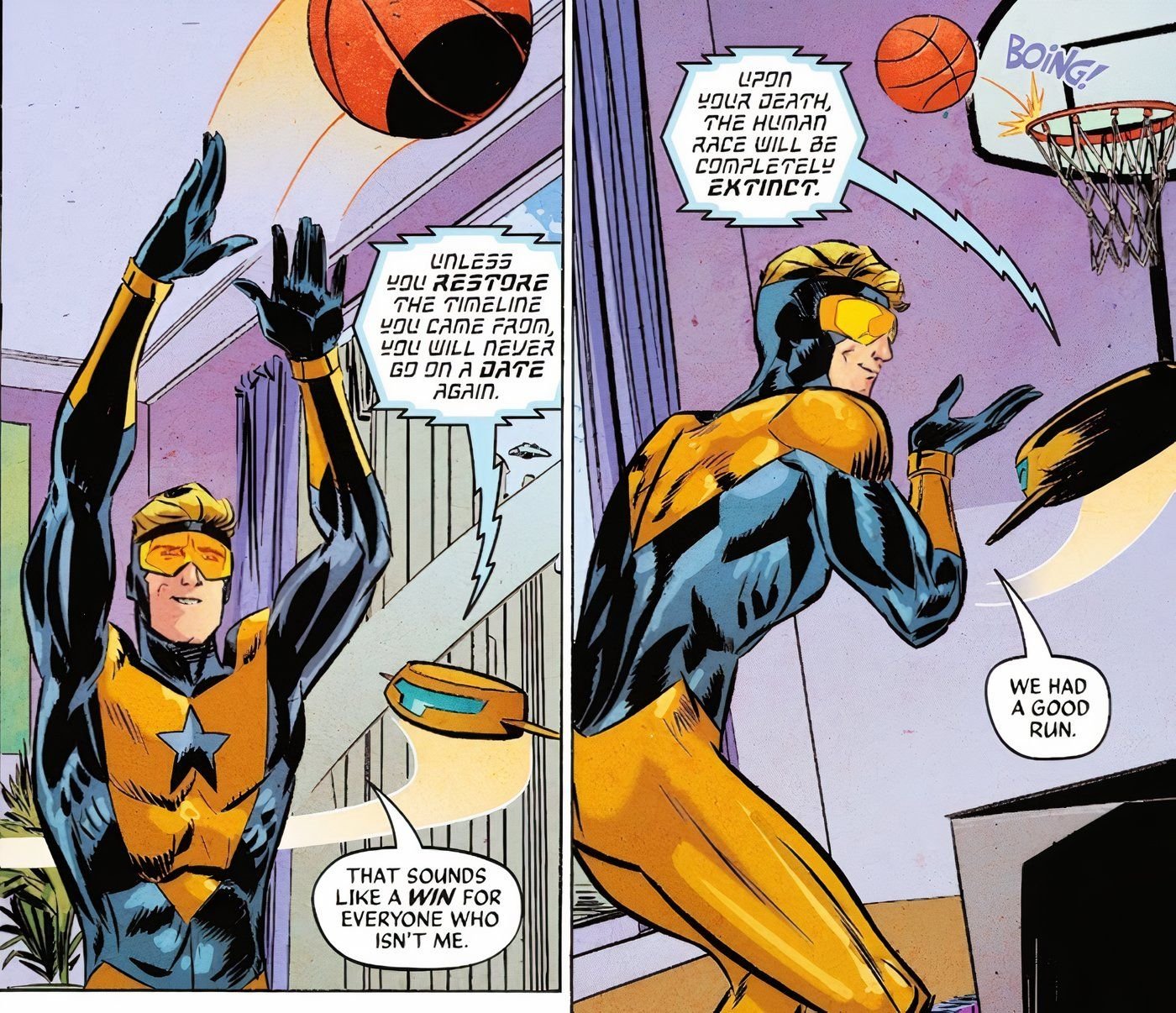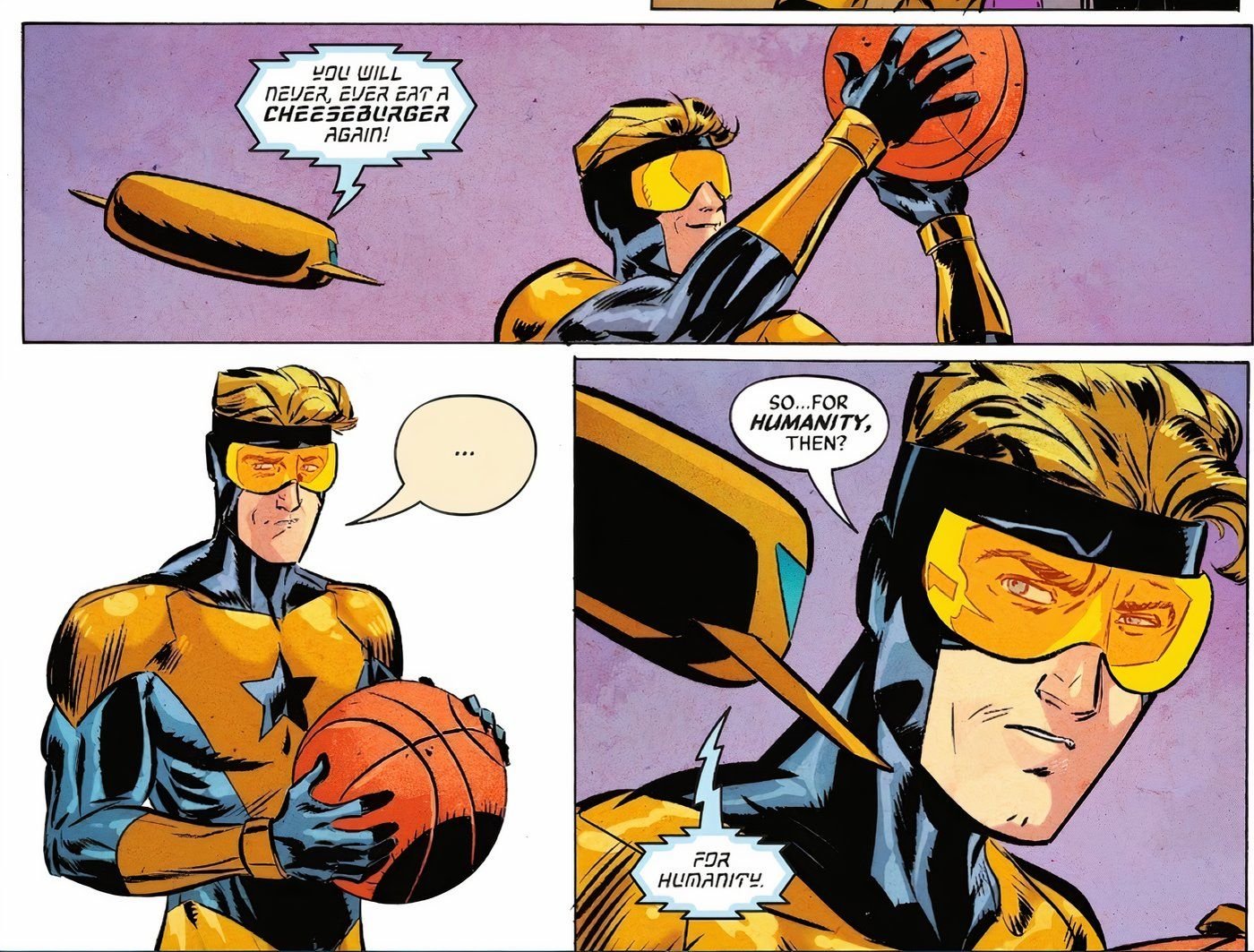Warning: Spoilers for Batman: The Brave and the Bold #14
Summary
- Booster Gold’s storyline in “Time Jerks” explores his deep depression, making him a relatable character.
- Booster inadvertently creates a dinosaur utopia and struggles with feeling misplaced and insignificant.
- The resolution to Booster’s depression is found in simple pleasures like a cheeseburger, offering a unique portrayal of mental health.
It’s easy to dismiss Booster Gold as the Justice League’s perennial clown: arrogant and buffoonish, he frequently requires saving from his own harebrained schemes, and his access to time-travel technology makes him a walking disaster. But there’s always been something deeper to the character, and the time he accidentally wiped out humanity is an excellent example of why I keep coming back to Booster Gold time and time again: his attempts to cope are surprisingly relatable to anyone who’s struggled with depression.
Split between Batman: The Brave and the Bold #13–14, the first two parts of Mark Russell and Jon Mikel’s story “Time Jerks” deal with Booster Gold accidentally diverting the asteroid that killed the dinosaurs, which leads to a future dinosaur utopia where humanity died out instead. Rather than fix the problem, Booster buys an apartment and hides.
Booster’s response, however, reveals a deep depression inside him: admitting that he’s always felt like “a misplaced comma the universe somehow forgot to erase,” it’s only the simple pleasure of a promised cheeseburger that gets him to try and set history right.
Booster Gold’s latest adventure, “Time Jerks,” concludes in
Batman: The Brave and the Bold
#15, available July 24th from DC Comics.

DC Reveals 1 Justice League Icon’s Official Dinosaur Form & We Have No Notes
The Jurrasic League has officially returned, bringing dinosaur-themed redesigns for various heroes. However, one hero’s redesign stands out above all.
In Booster Gold, I See My Depression
Created by Dan Jurgens, Booster Gold First Appeared in 1985’s Booster Gold #1 by Jurgens, Mike DeCarlo, Tom Ziuko, and Agustin Más
Like many in my generation, my first experience with Booster Gold was through the animated series Justice League Unlimited — specifically episode 7, “The Greatest Story Never Told.” There, I saw Booster’s every boastful attempt at getting the League to take him seriously backfire, only for him to quietly and singlehandedly save the world when no one is watching — and in a way that no one will believe. This story cemented Booster Gold in my heart as someone who desperately wants the world to see him, but also as someone who will still do the right thing when it is demanded of him.
I saw my own struggles with depression echoed in Booster’s attempts to adjust to the timeline and quietly fade away, convinced everyone is better without him.
Let’s put a pin in Booster Gold for a minute and talk about depression. Depression is an insidious beast that is incredibly difficult to deal with even in the best of times; my struggles with depression during the COVID-19 pandemic completely upended my life. It was only through the care of family and my therapist that I was able to accept that I deserved good things in life, and that path started with accepting that it was okay to indulge in simple pleasures like a good meal or a LEGO set (my personal vice).
In Booster Gold, I See Honesty
DC’s Heroic Con Man
Booster Gold’s behavior in “Time Jerks” reveals his depression. I saw my own struggles with depression echoed in Booster’s attempts to adjust to the timeline and quietly fade away, convinced everyone is better without him. To me, it’s very telling that it isn’t any grand heroic gesture that helps get Booster out of his funk: it’s the simple, relatable pleasures of a cheeseburger. Saving the universe is too big of a venture to tackle all at once when you’re feeling like a cosmic afterthought, but a cheeseburger run? Yeah, that you can maybe manage.
Too often, struggles with depression and mental trauma in the superhero landscape take the shape of “grim and gritty” brooding: dramatic internal monologues about the nature of power and its burden. By contrast, Booster Gold’s quiet resolve to live out his life in a foreign timeline is a much more relatable vision of depression that truly speaks to me. In the end, Booster Gold still does the right thing — he is a hero, after all — but watching him deal with his depression and come out the other side convinced me that the Justice League really needs to throw Booster Gold a bone.
Batman: The Brave and the Bold #14 is available now from DC Comics.
|
BATMAN: THE BRAVE AND THE BOLD #14 (2024) |
|
|---|---|
 |
|




